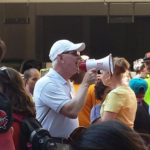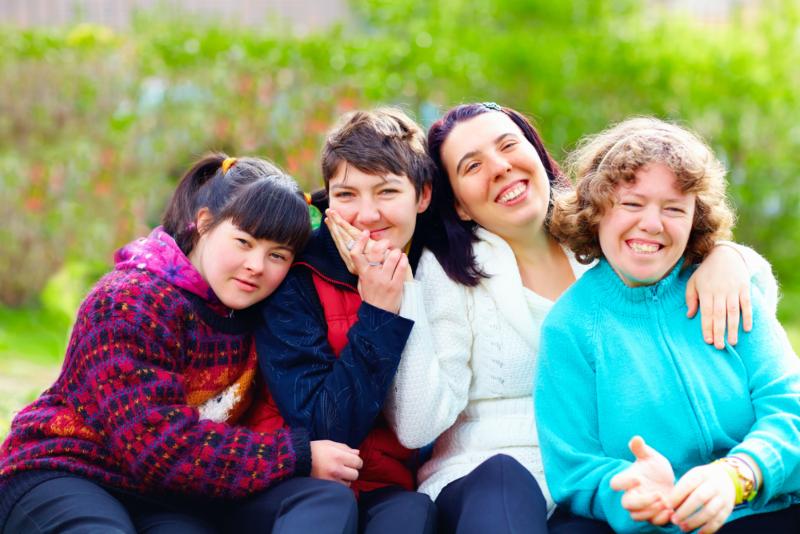Dr. Erik Carter presented on the 10 Dimensions of Belonging at The Arc’s National Conference of Executives Summer Leadership Institute. He is a professor at Vanderbilt University and emphasized that People with Intellectual and Developmental Disabilities need the following to be included in our community, as well as communities of faith: To be Present, Invited, Welcomed, Known, Accepted, Supported, Cared For, Befriended, Needed, and Loved.
Dr. Carter reminded us that both The Arc and the American Association on Intellectual and Developmental Disabilities have a joint Position Statement: “Spirituality, spiritual growth and religious expression that respect a person’s history, tradition, and current preferences are rights that must be honored (both) by services systems and faith-based communities, as should the choice not to participate.” Congregations need to do much more than accessibility ramps or just having a disability committee. He adds that our family members with disabilities need to have a sense of belonging in all of our communities. Loneliness in people’s lives is much more a killer than obesity, diabetes or other diseases.
But for this article, I want to focus on Dr. Carter’s ninth dimension, Needed. All of us need to be able to give back, to contribute, to help others. Our communities of faith have different ministries, but how often are people with disabilities given the opportunity to participate? I questioned the presenter, “aren’t churches, synagogues, temples and religious groups suppose to be about social justice and human rights?” His answer was, yes, and who better to carry that message than people with I/DD!
That’s exactly why The Arc of California has been reaching out to faith communities, as well as other non-profits, health & wellness organizations, senior services, educational associations and even unions. If they are truly concerned about people who need housing, employment, food, health care, transportation, and community, they need to meet and include our people who have the very same needs!
So what are we doing about it? We are having our people join these congregations in our community organizing and advocacy efforts. We have had organizers help train our people with I/DD and their families to be able to tell their stories to their faith communities, as well as to their legislators! The need to belong becomes a reality as we feel needed by being advocates.

Tim Hornbecker, Advocacy Coordinator, The Arc of California

